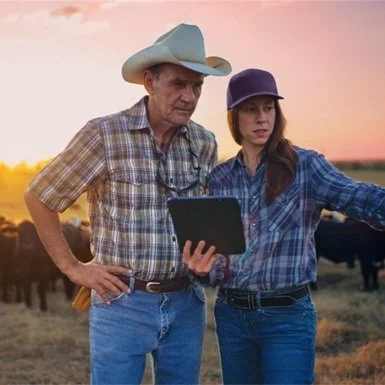
Restoring Rangeland Resilience
Invasive annual grasses threaten the resilience of Western Rangelands, impacting ecosystems and livelihoods. Tackling this challenge requires collaboration and innovative solutions.
Leveraging the latest science, R3 aims to restore and protect Western Rangelands through ecosystem service markets and science-based interventions that boost resilience, support sustainable grazing, and benefit rural communities.
Request for Interest
The Restoring Rangeland Resilience (R3) initiative is a comprehensive effort to reverse the damage caused by invasive species, particularly cheatgrass, across the Western U.S. Rangelands. These landscapes are critical to both the ecological health of the region and the livelihoods of ranchers who rely on them. R3 combines cutting-edge scientific research, breakthrough innovations - Rejuvra®, and carbon market mechanisms to restore native grasses, improve soil health, and reduce wildfire risks. By promoting these regenerative practices, R3 seeks to create long-lasting benefits for ecosystems, agricultural productivity, and rural economies.
As we prepare to scale these efforts across millions of acres, we are seeking input from industry experts, researchers, land managers, and stakeholders to help shape the future of the initiative. Your insights will be invaluable in refining R3’s approach and ensuring the long-term success of the program.
Ready to help restore our rangelands?
Join us in creating a lasting impact on the Western U.S. rangelands. Whether you’re project developer, rancher, researcher, investor, or a partner in the food supply chain, your voice matters. We’re seeking insights from all stakeholders to help shape the future of rangeland resilience through the R3 Request for Interest (RFI).
Together, we can develop sustainable solutions that benefit our lands, communities, food systems, and future generations.

"Mother nature is going to take care of us if we take care of the land, and Rejuvra is going to help us. It's a tool we can use to ensure us for the next generation."
— Gary Newton, Rancher



